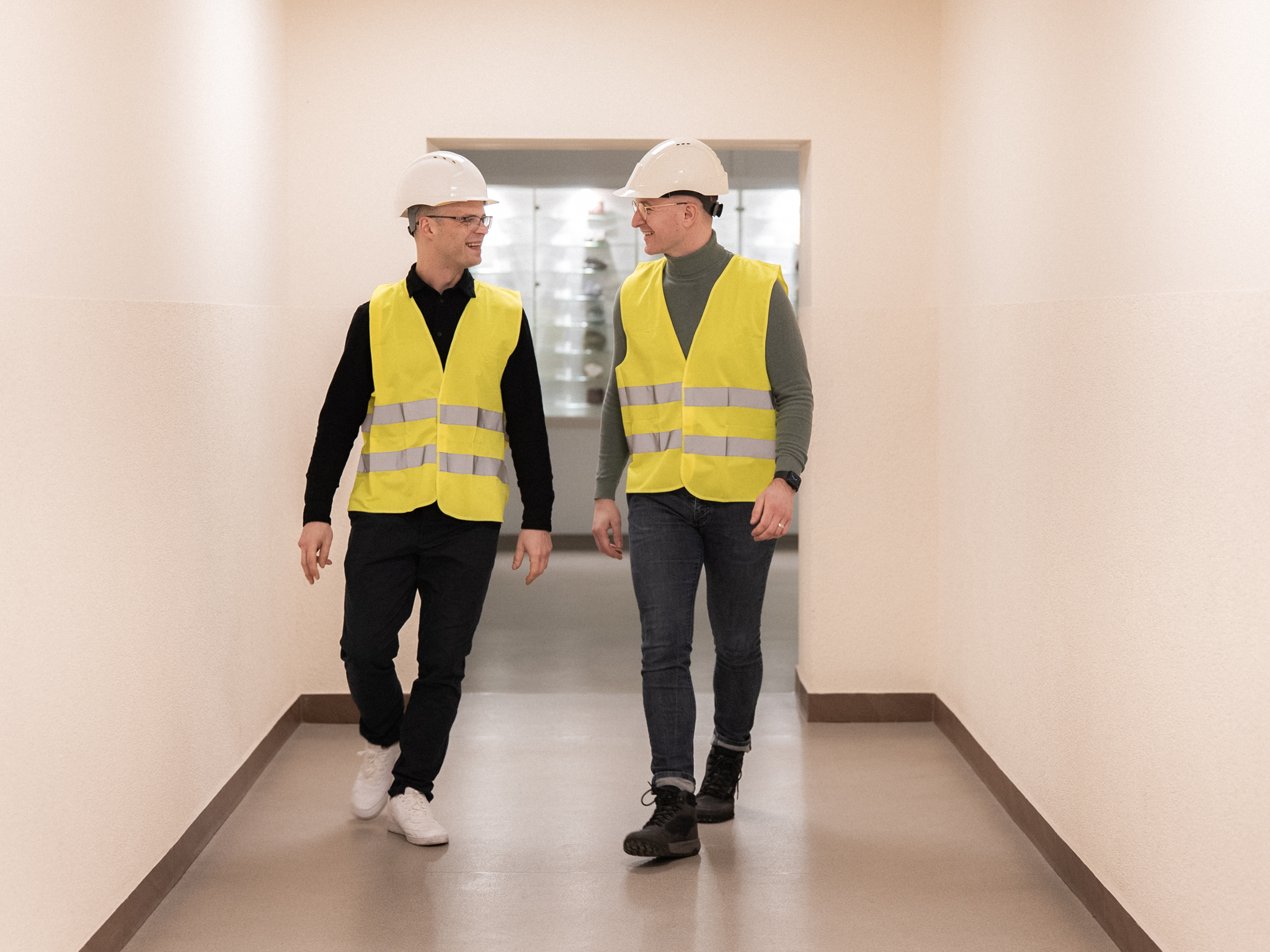Civil Engineering

| CIVIL ENGINEERING | |
| State code | 6531EX018 |
| Faculty | Civil Engineering Faculty |
| Study field | Civil Engineering |
| Qualification | Professional Bachelor of Engineering Sciences |
| Form and duration of studies | Full-time – 3 years |
| Credits | 180 ECTS credits |
| Study plans | Full-time studies Degree Course 2025 |
Career Prospects
- as a specialist in public and private companies in the construction sector;
- heads of production departments, engineers, designers, managers;
- a manager in your own business.
Learning Outcomes
You will be able to:
• Will have basic knowledge of general mathematics, physical and technological sciences, enabling them to understand and describe processes in the field of civil engineering.
• Will know the most important civil engineering concepts and understand their content.
• Will have fundamental and up-to-date knowledge of civil engineering, essential for practical work.
• Will be familiar with digital technologies and their applications in civil engineering.
• Will be able to find relevant information in civil engineering sciences, systematize and interpret it.
• Will be able to carry out experiments and research necessary for building design and construction process management, analyse results, provide conclusions, and apply them in practice.
• Will be able to work in teams on the implementation of construction projects, taking into account principles of circular economy, artificial intelligence, digitalization of construction projects, ethical, environmental, commercial, organizational, occupational safety and health aspects, and the development of sustainability concepts.
• Will be able to read and analyse construction project drawings, calculations, and technical documents.
• Will be able to solve civil engineering tasks and select appropriate methods, experimental and production equipment for their solution.
• Will understand building and construction process design methodologies and be able to use specialized software for building and construction process design.
• Will have practical skills in working with equipment used in construction.
• Will be able to practically solve civil engineering problems, such as structural design of buildings, selection of construction materials, organization of construction works, and ensuring work safety.
• Will have knowledge of key aspects of construction project implementation and management at the engineering level.
• Will be able to collaborate with specialists from other professional fields.
• Will be able to solve civil engineering tasks both individually and in a team.
• Will be able to communicate with the engineering community and the general public in correct Lithuanian and at least one foreign language.
• Will understand the impact of engineering decisions on society and the environment, will adhere to professional ethics and standards of engineering practice, and will recognize responsibility for the outcomes of engineering activities.
• Will understand the importance of lifelong individual learning and be prepared for it.
Full-time studies
Degree Course 2025
| 1st semester (30 credits) | ||
| Subjects | Credits | Evaluation* |
| Specialty Language and communication | 3 | E |
| Mathematics | 6 | E |
| Applied Physics | 6 | IW |
| Digital technologies | 3 | IW |
| Building Materials | 6 | E |
| Internship of Construction Works | 3 | IW |
| Specialty Foreign Language (English) | 3 | IW |
| 2nd semester (30 credits) | ||
| Subjects | Credits | Evaluation * |
| Applied Physics | 3 | E |
| Engineering and Computer Graphics | 6 | IW |
| Building Materials | 3 | IW |
| Applied Mechanics | 6 | E |
| Engineering Geodesy and Practice * | 3 | IW |
| Engineering Geodesy and Practice * (practice) | 3 | IW |
| Legal Regulation of Construction Process | 3 | E |
| Specialty Foreign Language (English) | 3 | IW |
| 3rd semester (30 credits) | ||
| Subjects | Credits | Evaluation * |
| Sustainable Environment and Human Safety | 3 | E |
| Building Architecture and Constructions | 9 | IW |
| Building Information Modelling | 6 | IW |
| Calculation of Structures | 6 | IW |
| Geotechnics | 3 | E |
| Applied Research | 3 | IW |
| 4th semester (30 credits) | ||
| Subjects | Credits | Evaluation * |
| Building Architecture and Constructions | 6 | IW |
| Building Information Modelling | 3 | IW |
| Calculation of Structures | 3 | IW |
| Building Design Practice | 6 | IW |
| Construction Technology and Organization | 6 | E |
| Industrial Technological Practice | 6 | IW |
| 5th semester (30 credits) | ||
| Subjects | Credits | Evaluation * |
| Construction Technology and Organization | 6 | IW |
| Industrial Technological Practice | 6 | IW |
| Economics of Construction | 3 | IW |
| Project Management | 6 | IW |
| Buildings Maintenance | 3 | E |
| Sociology/Psychology/Sustainable Development | 3 | IW |
| Freely selectable subjects | Credits | Evaluation * |
| OP1. Recycling and Reuse of Materials | 3 | IW |
| OP1. Sustainable Buildings and their Evaluation | 3 | IW |
| 6th semester (30 credits) | ||
| Subjects | Credits | Evaluation * |
| Construction Technology and Organization | 6 | IW |
| Final Practice | 6 | IW |
| Final Project | 12 | IW |
| Freely selectable subjects | Credits | Evaluation * |
| OP2. Responsible Innovation | 3 | IW |
| OP2.Visual and Security Systems | 3 | IW |
| OP3. Building Scanning Technologies | 3 | IW |
| OP3. Non-traditional technologies in construction | 3 | IW |
Optional subjects are freely selectable subjects from the list of predefined subjects.
Evaluation *:
E – exam;
IW – individual work;
OP – freely selectable subjects.